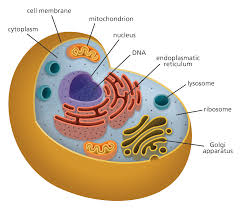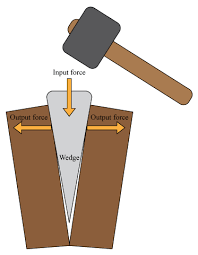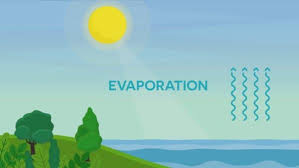SYSTEMS
What are the three factors that affect the rate of dissolving?
The three factors that affect the rate of dissolving are temperature, agitation, and particle size.
what is the smallest unit of life?
Cells

what is the difference between input and output force?
Input force- input force is the force applied to the machine.
Output force- output force is a force by the machine.

law of refection
The angle of reflection is refection is equal to the angle of incidence.
how much freshwater is found on earth? where is most of our freshwater found?
2.5% of the earth has freshwater. Most of freshwater is found in icecaps and glaciers.
what is soluble and insoluble?
Soluble is a substance that dissolves in water easily, and insoluble is a substance that doesn't dissolve in water.
what is permeable, impermeable, and selectively permeable?
Permeable- permeable is an object that allows liquids and gases to pass-through.
Selectively permeable- selectively permeable is an object that allows certain fluids to pass through.
Impermeable- impermeable is an object that doesn't allow any liquid or gas to pass through.
It is a ratio of force you applied to the machine and force produced by the machine.
What is a mechanical advantage?
What are the four properties of light?
1) light can be reflected
2) light is a form of energy
3) light travels in a straight travel
4) light can bend
In this process water in oceans and lakes turns into vapour.
Evaporation

What is the difference between a solution and mechanical mixture?
Solution has particles dissolve, mixture you can still see the individual elements
Where is DNA held in a cell
Nucleus
The pressure applied to a confined liquid is transmitted evenly through the fluid in all directions.
what is the pascal law?
A person can see thinks far clearly but thinks near appear blurred and are not visible properly. what is this disorder called?
Hyperopia
what is global warming?
Global warming is a gradual increase in the temperature of the earth.
What are the 5 points in the Particle Theory of Matter?
1) All matter is made up of tiny particles
2) All particles in a pure substance are the same. Different substances are made up of different particles
3) Particles move faster when heated
4) Particles have spaces between them
5) The particles in a substance are attracted to each other. The strength of the attractive force depends on the particle
what is the job of the stomach acid?
The stomach acid is used to digest food and protects the stomach wall from being damaged by the strong hydrochloric acid produced by the parietal cells.
What is an example of a class 1 lever?
Many
This is the composition of light through a chemical. An example of this is glowsticks.
What is the chemiluminescent source?
Name one of the causes of saltiness in the ocean
Volcanic activity
Erosion and deposition of sediment
what should you do to decrease the viscosity of a liquid? why?
To decrease the viscosity if a liquid you need to increase the temperature. You need to increase the temperature because that decreases attractive forces between liquid particles, which makes it less vicious.
How is the respiratory and circulatory system connected?
The respiratory and circulatory systems are connected because the respiratory system exchanges gasses and after you breathe in oxygen the circulatory system uses that oxygen to deliver the oxygenated blood and nutrients around the whole body.
What isthe unit that force is measured in?
Newtons
An object can be heated to such a high temperature that it emits visible light.
What is incandescent source of light?
The sharp pointed parts of mountains created by glacier.
Arete